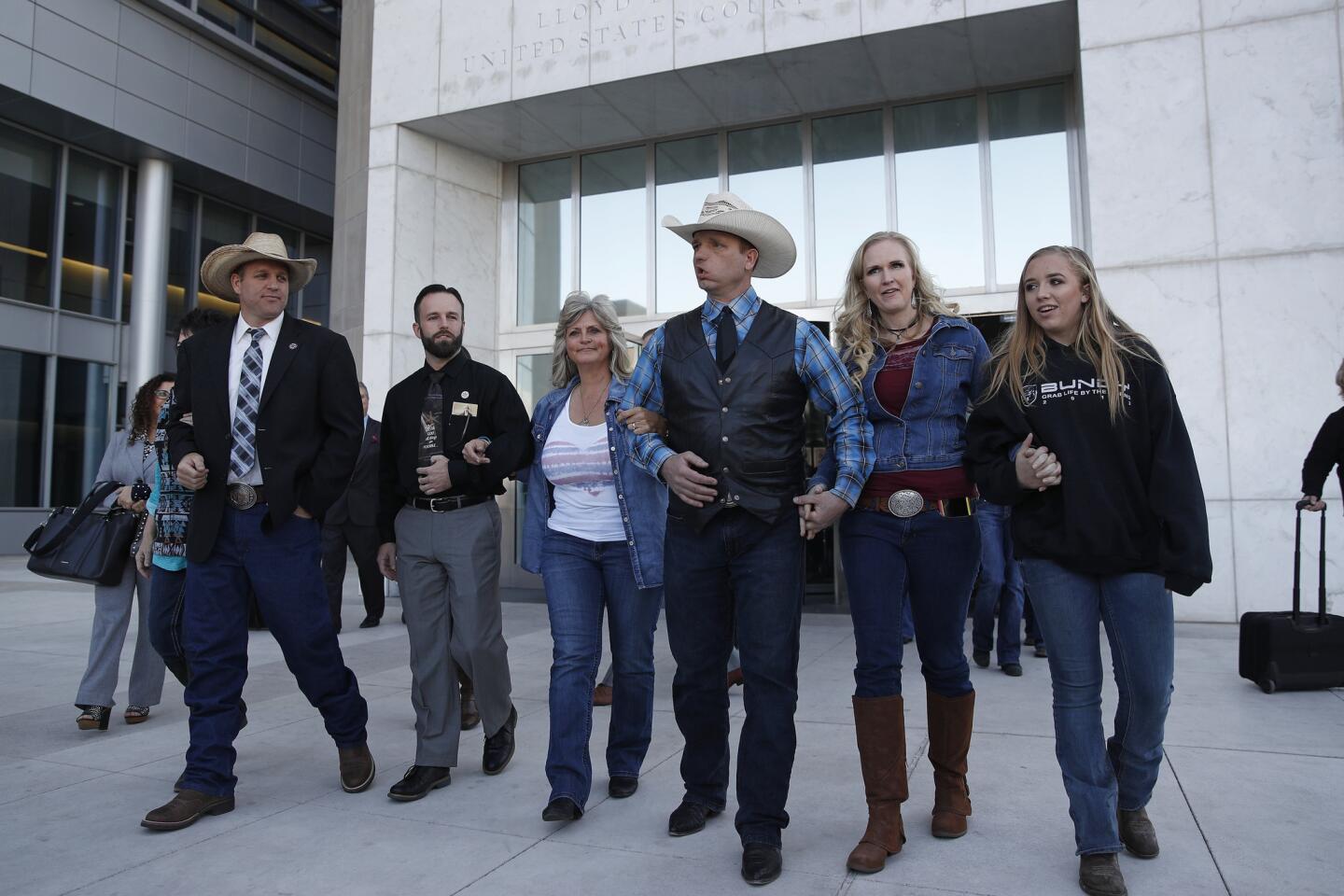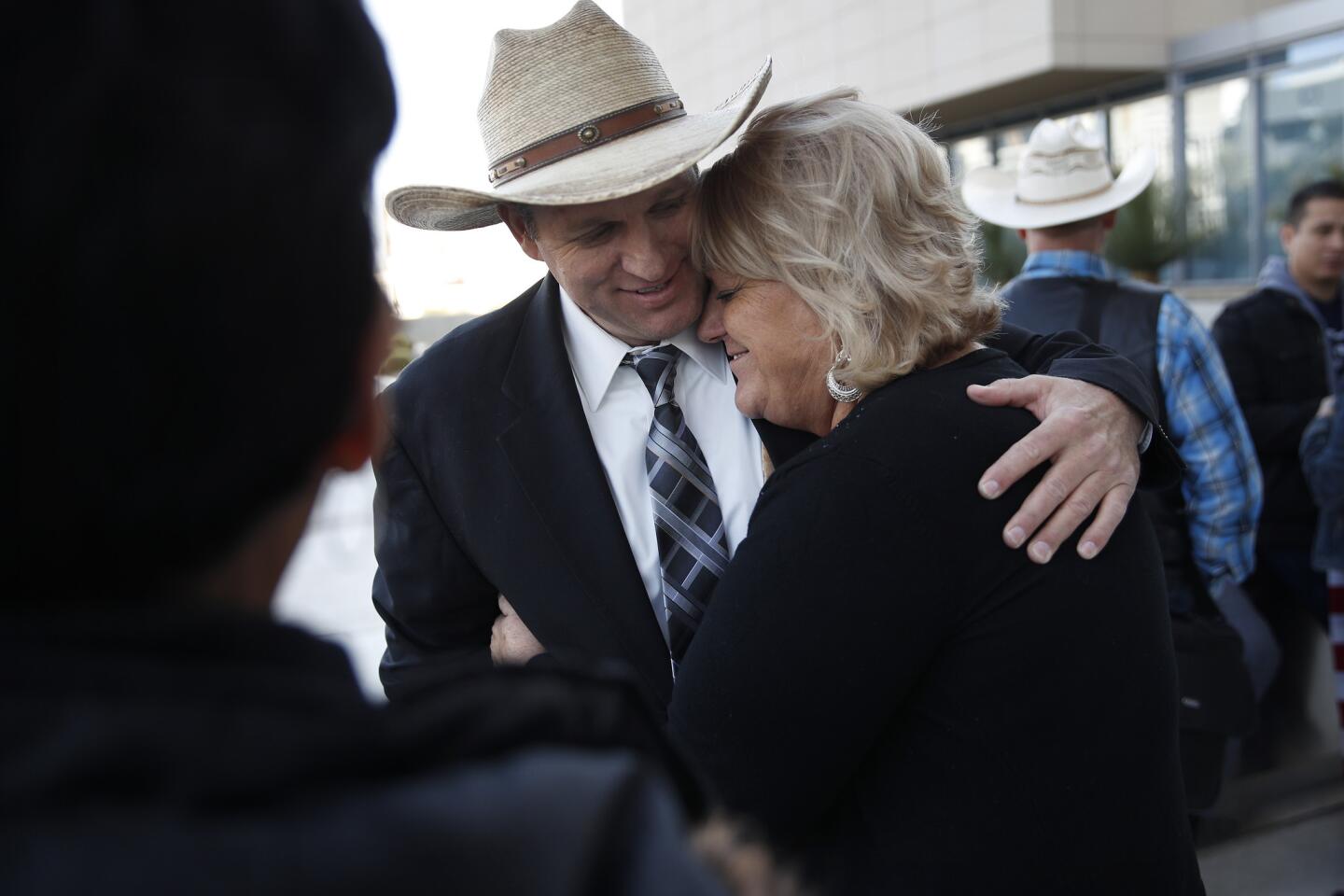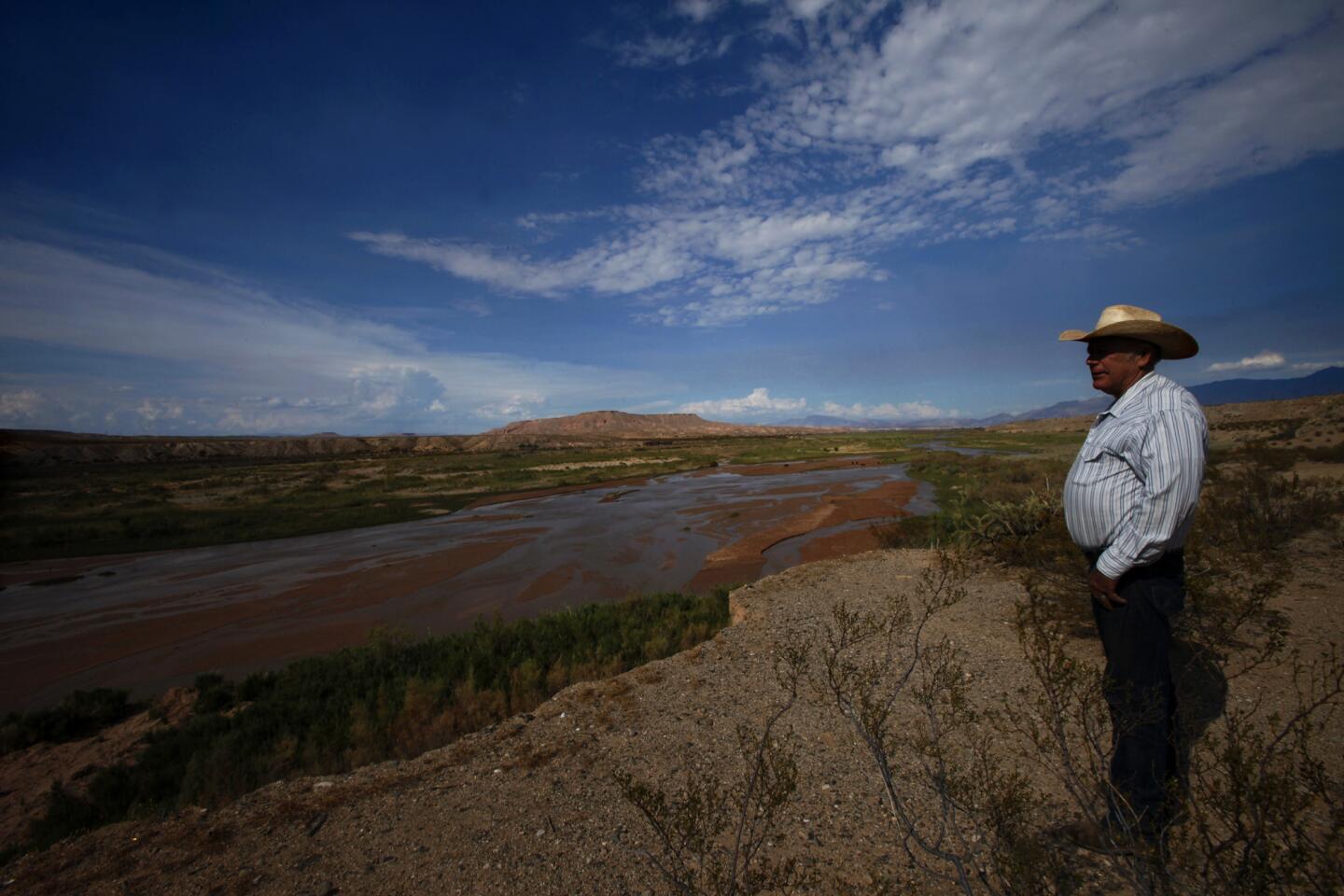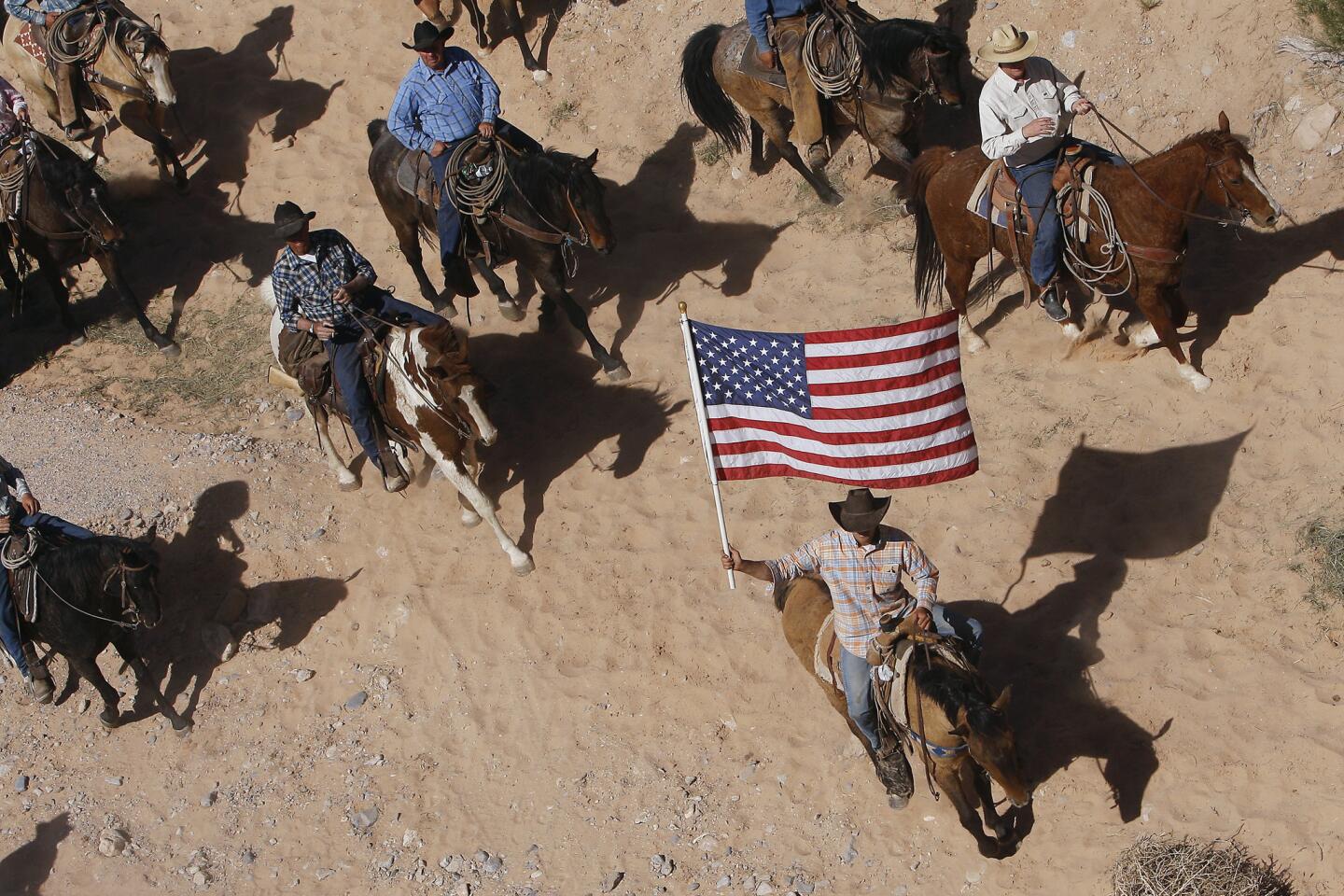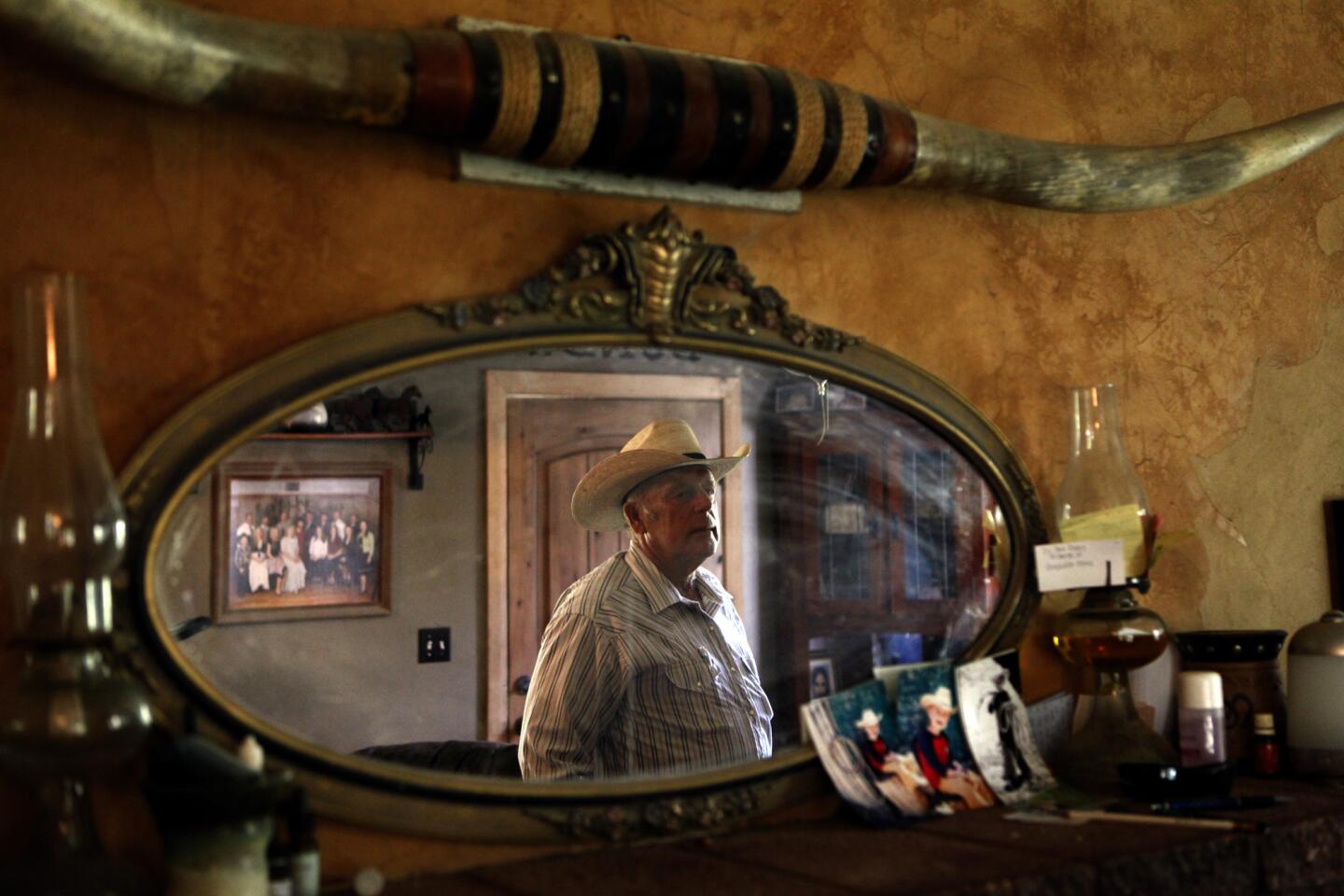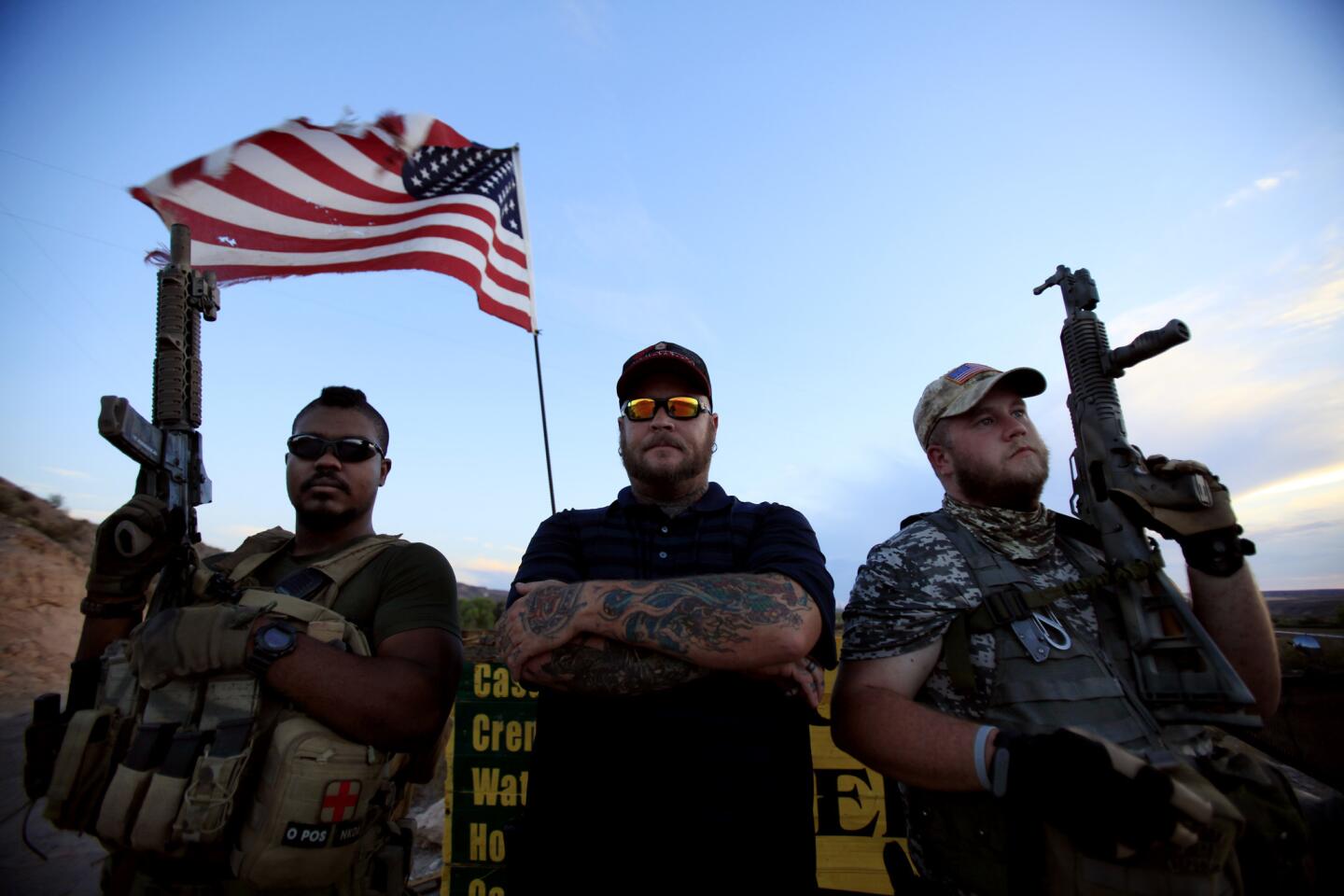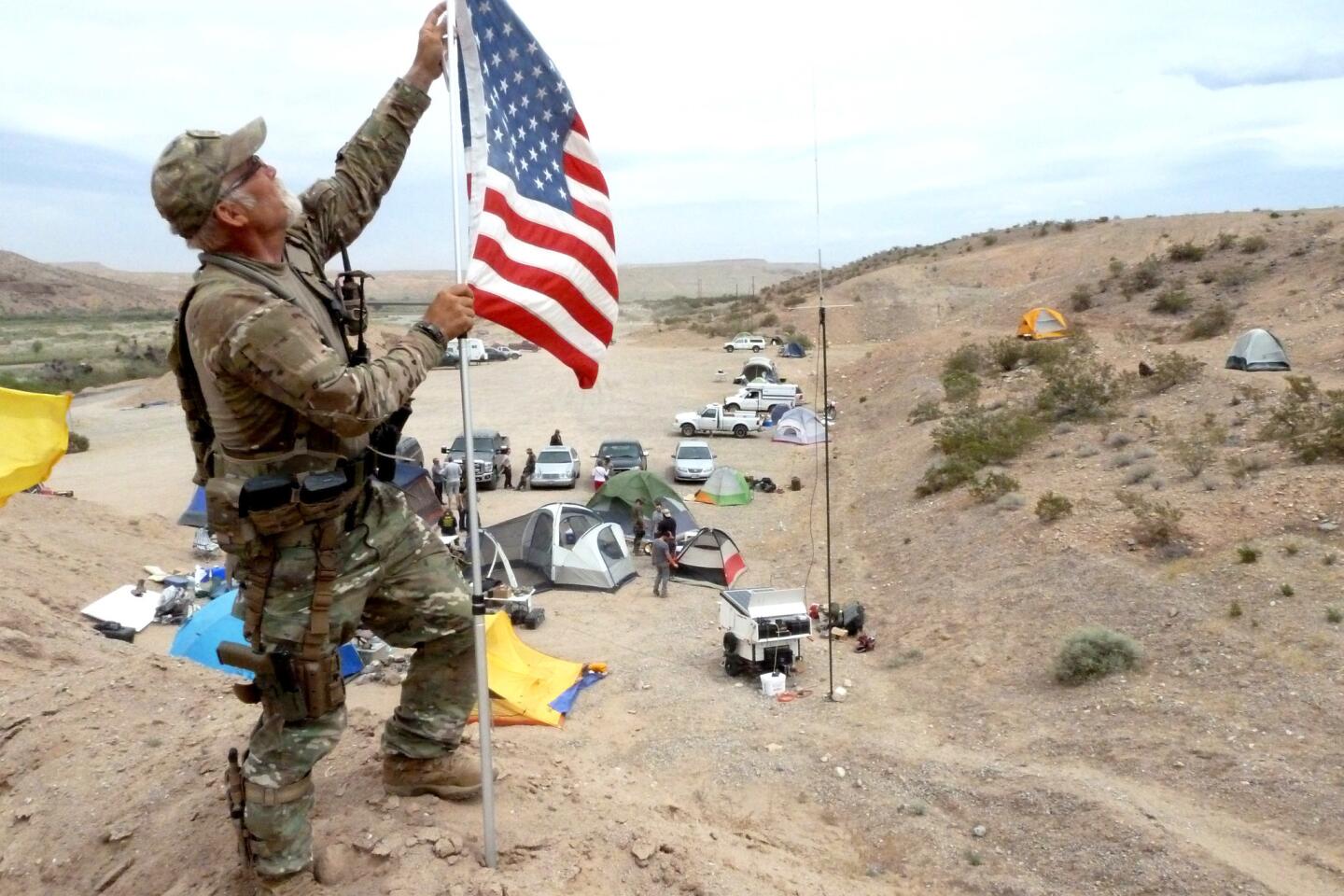Judge dismisses case against Nevada rancher Cliven Bundy and his sons
- Share via
Reporting from Las Vegas — It started four years ago, when Cliven Bundy and his sons refused to pay federal grazing fees and stared down government agents in an armed standoff outside their Nevada ranch.
The Bundys dared the federal government to arrest them. The government did, charging them with a range of felonies.
On Monday, a federal judge in Las Vegas set them free.
The decision left federal prosecutors swallowing another defeat at the hands of a family whose defiance has become a rallying cry for Westerners who believe the federal government has no business managing public land. Four times now — in high-profile cases in Nevada and Oregon — the Bundy family and its allies have beaten the federal government in court.
For the latest showdown, supporters set up banners and signs on Las Vegas Boulevard. One drove from Montana to provide Facebook updates for devotees of the cause.
At least 100 Bundy backers filled the courtroom Monday. Some wore shirts with American flag motifs. Others carried pocket Constitutions in their button-down shirts. More than a few wore cowboy boots.
Their heroes sat looking up at U.S. District Judge Gloria Navarro. Cliven Bundy, 71, wore a jailhouse jumpsuit. His son Ryan, 44, who led a large group of supporters in prayer before entering the courtroom, removed his cowboy hat. Another son, Ammon, 42, and a militia member, Ryan Payne, barely moved.
It was their moment.
Navarro rebuked federal prosecutors — using the words “flagrant” and “reckless” to describe how they withheld evidence from the defense — before saying “that the universal sense of justice has been violated” and dismissing the charges.
Supporters dabbed their eyes with tissues. Outside in the hall, there were cheers.
The four defendants were charged with threatening a federal officer, carrying and using a firearm, and engaging in conspiracy. The case had once looked like a slam-dunk to some.
The images that had made the Bundys heroes to some — armed supporters facing down federal agents as contractors with the U.S. Bureau of Land Management tried to seize cattle — seemed to be compelling evidence.
Monday’s dismissal was hinted at last month when Navarro ordered a mistrial. But she offered prosecutors a chance to make their case for why she should grant another trial.
Assistant U.S. Atty. Steven Myhre wrote in his brief that the government had shared 1.5 terabytes of information with defendants and noted that it was “by far the largest review and disclosure operation in this [U.S. attorney’s office] history.”
Myrhe also argued the government needed to protect some witnesses from leaks that might lead to threats, so it “culled the database with witness protection in mind.”
“Unprecedented database volume and witness concerns aside, the government never let these obstacles stand in the way of diligently working to fulfill its discovery obligations,” he wrote.
Navarro didn’t buy it and shredded the government for a “reckless disregard for Constitutional obligations.” She said she was troubled by the prosecution’s tardiness in delivering information about the government’s placing of surveillance cameras and snipers outside the ranch.
After the decision, Cliven Bundy emerged from an elevator at the courthouse dressed in jeans, button-down shirt and gray blazer.
“I’m not used to being free, put it that way,” he said. “I’ve been a political prisoner for right at 700 days today. I come into this courtroom an innocent man and I’m going to leave as an innocent man.”
He also seemed ready to resume his role as a leader on the issue of local control of federal land. It’s a decades-long fight for Bundy, who first tussled with the Bureau of Land Management in the 1990s by refusing to pay grazing fees for his cattle using federal land.
As he and his wife, Carol, walked out into a spitting rain, hundreds of supporters cheered. A “Not Guilty” sticker had been stuck to his lapel. The rancher took off his hat and waved it to the crowd before posing for pictures.
He criticized Clark County commissioners, the Clark County sheriff and Nevada’s governor for not coming to his defense.
“My defense is a 15-second defense: I graze my cattle only on Clark County, Nev., land and I have no contract with the federal government,” he said. “This court has no jurisdiction or authority over this matter. And I’ve put up with this court in America as a political prisoner for two years.”
His attorney, Bret Whipple, said there would be a news conference Tuesday in front of Las Vegas police headquarters to talk about control of public land.
U.S. Atty. Dayle Elieson of Nevada, who was appointed by Atty. Gen. Jeff Sessions last week, released a short statement after the decision. “We respect the court’s ruling and will make a determination about the next appropriate steps.”
Ian Bartrum, a law professor at the University of Nevada, Las Vegas, said that while the court decision was a defeat for the Justice Department, it could be seen as a victory for Trump administration policy to shrink national monuments and push for local control of federal land.
“Most of Trump’s base are Bundy supporters,” Bartrum said in an email. “This plays right into the larger Trump narrative about the Swamp versus the People. I think you might be right to say they aren’t that unhappy … and will likely make some political hay out of it.”
Advocates for federal enforcement of land regulations were quick to criticize the government’s handling of the case.
“Federal prosecutors clearly bungled this case and let the Bundys get away with breaking the law,” Kieran Suckling, executive director of the Center for Biological Diversity, said in a statement. “The Bundys rallied a militia to mount an armed insurrection against the government. The failure of this case will only embolden this violent and racist anti-government movement that wants to take over our public lands.”
Twice last year, Las Vegas juries acquitted or deadlocked on felony charges against Bundy supporters. Then Ammon and Ryan Bundy each beat federal felony charges in a case stemming from a 41-day standoff in 2016 at an Oregon wildlife preserve.
Twitter: @davemontero
UPDATES:
8:15 p.m.: The story was updated throughout with details of the court proceedings and background on the case.
The story was originally published at 10:20 a.m.
More to Read
Sign up for Essential California
The most important California stories and recommendations in your inbox every morning.
You may occasionally receive promotional content from the Los Angeles Times.
